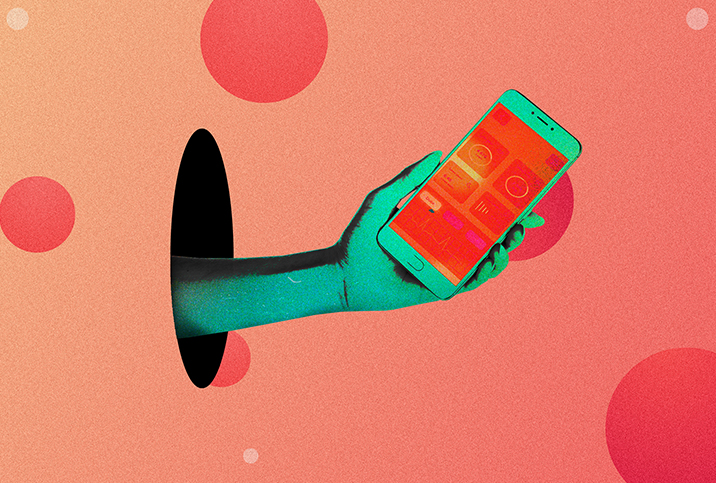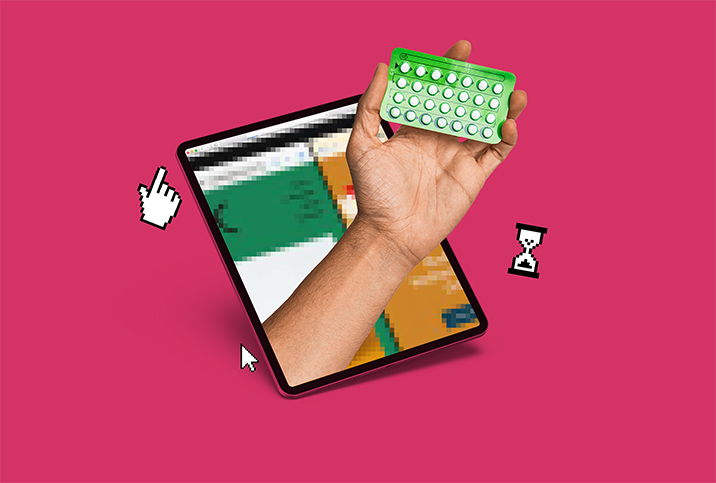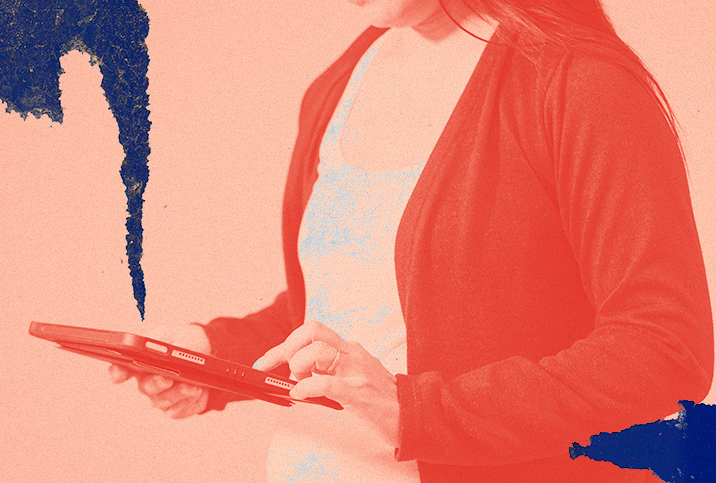An Online Portal Isn't the Same as a Sexual Health Clinic

It's become common for people to seek mental and physical health services through telehealth platforms rather than, say, a sexual health clinic: think videoconferences or a portal to a digitized health record. But for many people, putting healthcare online muddies basic issues such as communication, liability and personal rights.
For example, it's not uncommon to see waivers and disclaimers for patient use of online platforms. Most people aren't fluent in "legalese" and probably don't go through these documents with a fine-tooth comb before signing them, but certain sections deserve a close reading. Health service providers include some kind of disclaimer to minimize, if not neutralize completely, liability for any medical errors that may occur as a result of using online platforms as a primary source of personal healthcare.
If a provider disavows responsibility in this way, is there a chance online portals can do more harm than good?
A question of accountability
Increased access to healthcare services is generally a good thing for patients across the country. However, if accessibility comes with too little accountability, can we really consider that progress?
"I think the fear has got more to do with losing control and the God-like question, what's going to happen when people can actually make their own decisions?" said Christine Brennan, a registered nurse and an associate professor at Louisiana State University's School of Public Health.
When she discussed home-based technologies for STD/STI testing and other health services, she introduced the idea that new devices and technologies can take a tremendous amount of burden off healthcare workers around the world.
"And it's just great," she said. "These are all wonderful things that a person can take upon themselves."
Online health portals are a big part of how patients are taking things upon themselves. Ease of access gives patients more immediate test results, fairly extensive health records with the click of a mouse and self-education about a variety of health concerns.
But not everyone is digitally or medically literate enough to navigate lab results documented in the potential labyrinth of a medical chart. Perhaps it's possible that by relying on portals too heavily, providers potentially cause undue stress by skipping out on tried-and-true traditions like phone call follow-ups and in-person consultation.
More concerning is the idea that many patients—and healthcare professionals—are not comfortable with the topic of sexuality, which leads to the question of how sexuality is addressed during digital correspondence.
It's fine for both patients and providers to lean heavily on online portals to monitor and manage health issues. But undoubtedly, medical correspondence and record-keeping can go awry. Such mistakes can have a significant impact on a patient's well-being.
Seniors and the cyber-reality of sexual health
Author Walker Thornton advocates for proactive sexual health awareness. She mainly works with older adults who may struggle to keep up with the rapidly changing technological landscape. In her experience, if a patient feels like their provider isn't meeting their sexual health needs, "Ask for referrals."
"Of course, there's just the basic issue of people feeling uncomfortable challenging someone they perceive to be an authority," she noted. "And when it comes to sex, the medical people just aren't really geared to go there. Hopefully, there's that education piece from the beginning where you can say to the doctor, 'Here's my concern: Do you have someone who works with this specifically who might be able to assist me?' And the chances are that the doctor is not going to have resources, either."
A situation can quickly go from dismal to abysmal if a doctor chooses to hide behind legalese caveats when sensitive sexual matters arise. But videoconferencing still may be beneficial to the patient.
"I think in some ways anybody who's doing sexual health online could be a bonus for people who are uncomfortable talking about it, because the Zoom part of it makes it feel a little less personal," Thornton said.
Then again, sex is personal
Anyone who's ever had lab work done for a sexual health screening is probably familiar with the phrase "No news is good news." As access to health portals has become increasingly common, this type of policy has become more and more standard among medical providers, even when patients adamantly insist that they prefer direct contact with their physician or medical team over remote access to digital records. If a doctor doesn't want to communicate about a "nothing" result, what message does the patient receive?
We know healthcare workers are spread thin in the United States, and no one wants them to be drained more than they already are. But delivering good news once in a while could do wonders for patient-doctor rapport. By limiting potentially pivotal interactions to computers, we may be taking away the rare positive shared experience between patient and physician.
Sexuality and sexual health are very personal matters, so channeling all patient interactions to a computer rather than a sexual health clinic is not the best experience. If we're all going to make use of online platforms to monitor and manage sexual health, parts of that process should be designated to have some human interaction.




















